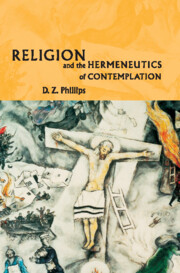Book contents
- Frontmatter
- Contents
- Preface and acknowledgements
- 1 Hermeneutics and the philosophical future of religious studies
- 2 Bernard Williams on the gods and us
- 3 Hume's legacy
- 4 Feuerbach: religion's secret?
- 5 Marx and Engels: religion, alienation and compensation
- 6 Tylor and Frazer: are religious beliefs mistaken hypotheses?
- 7 Marett: primitive reactions
- 8 Freud: the battle for ‘earliest’ things
- 9 Durkheim: religion as a social construct
- 10 Lévy-Bruhl: primitive logic
- 11 Berger: the avoidance of discourse
- 12 Winch: trying to understand
- 13 Understanding: a philosophical vocation
- Index of names
- Index of subjects
6 - Tylor and Frazer: are religious beliefs mistaken hypotheses?
Published online by Cambridge University Press: 03 December 2009
- Frontmatter
- Contents
- Preface and acknowledgements
- 1 Hermeneutics and the philosophical future of religious studies
- 2 Bernard Williams on the gods and us
- 3 Hume's legacy
- 4 Feuerbach: religion's secret?
- 5 Marx and Engels: religion, alienation and compensation
- 6 Tylor and Frazer: are religious beliefs mistaken hypotheses?
- 7 Marett: primitive reactions
- 8 Freud: the battle for ‘earliest’ things
- 9 Durkheim: religion as a social construct
- 10 Lévy-Bruhl: primitive logic
- 11 Berger: the avoidance of discourse
- 12 Winch: trying to understand
- 13 Understanding: a philosophical vocation
- Index of names
- Index of subjects
Summary
ANIMISM AND INTELLECTUALISM
E. B. Tylor and James Frazer, the two thinkers to be discussed in this chapter, are said to investigate religion in the intellectualist tradition. What is intellectualism? It is important to be clear about this term at the outset. We must distinguish between an intellectualist and an intellectual investigation of religion. The former assumes that the point of beliefs is to be found in their intellectual relation to the world. That relation is thought of in scientific terms which, it is said, do justice to the literal meaning of the beliefs. Thus, John Skorupski tells us:
The literalist takes magical and religious rites to be, by and large, ‘instrumental’ acts: actions which the actors perform because of the aimed-at consequences which they believe their actions will have. This already commits him to a view of the actors' underlying beliefs – namely, that they are beliefs about the world which can be used to explain it and which underpin attempts to control it. The intellectualist seizes on this role which magico-religious beliefs do play and takes it to be the role which they are called forth to play.
Unlike the intellectualist, the intellectual does not assume that all beliefs are related to the world intellectually, and certainly does not assume that magico-religious beliefs are causal hypotheses about events in the natural world. Rather, the intellectual contemplates the nature of various beliefs in human life.
- Type
- Chapter
- Information
- Religion and the Hermeneutics of Contemplation , pp. 146 - 182Publisher: Cambridge University PressPrint publication year: 2001



